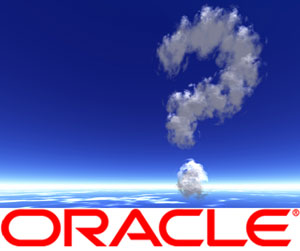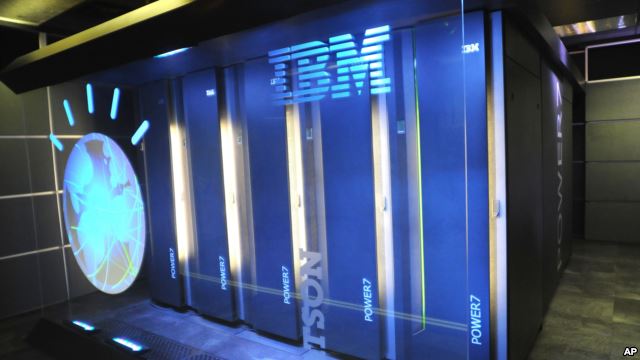These days, almost all the big technology companies are taking cloud computing for business very seriously. Especially Oracle, the 117,000-employees strong iconic Silicon Valley firm, which believes that beyond just lowering upfront costs, the cloud—a broad term referring to the delivery of computer services via the internet from remote data centres—can deliver greater agility and free up resources, so companies can focus on innovation instead of just running and maintaining systems.
In recent months, companies from IT-enabled services, travel & transportation, automobile & ancillary, publishing, real estate, media, telecom, BFSI, manufacturing, retail, pharmaceuticals and life sciences have embraced Oracle cloud solutions in India.
Now, Oracle has a brand new kind of database. It’s called Oracle 12c and the c stands for cloud. Oracle Database 12c
introduces 500 additional features and is the result of 2,500 person-years of development and 1.2 million hours of testing, plus an extensive beta programme with Oracle’s customers and partners. “This is the latest generation of the world’s most popular database,” says Sheshagiri Anegondi, vice-president, technology business at Oracle India. “Available in
India, it is designed for the cloud and will enable customers to make more efficient use of their IT resources while continuing to improve their users’ service levels. Oracle Database 12c makes it easier for customers to take advantage of the cloud by simplifying the process of consolidating databases onto the cloud, enabling customers to manage many databases as one,” he informs.
Oracle Database 12c introduces a new multi-tenant architecture that makes it easy to deployand manage database clouds and enables customers to take full advantage of the resource sharing and cost savings that cloud computing offers. Industry research reveals that many IT organisations have already taken the first few steps on their journey towards the cloud. This isn’t too surprising, as cloud computing offers an opportunity for IT organisations to be more responsive to changes in application workloads and business demands, while also reducing IT complexity and costs. Gartner predicts continued strong growth in public cloud services, with end-user spending on public cloud services likely to grow 18% in 2013 to hit a global figure of $131 billion. By 2015, that same market could be more than $180 billion.
Last week, Oracle also announced new database-to-storage system capabilities for customers using Oracle Database 12c with Oracle’s Sun ZFS Storage Appliance and Pillar Axiom storage systems. The new capabilities enable Oracle database users to optimise database performance and quickly create new development and test environments.
“As organisations embrace the cloud, they seek technologies that will transform business and improve their overall operational agility and effectiveness,” says Sheshagiri Anegondi. Oracle’s new database will help customers efficiently manage more data, lower storage costs and improve database performance.
According to an IDC research note, Oracle is in an interesting position relative to the current and changing landscape in the storage industry. On one hand, the company has acquired disk storage systems and tape automation and drive technology from Sun Microsystems and StorageTek, thus competing against EMC, IBM, and NetApp, among others,for traditional storage deals. However, where Oracle introduces market disruption is in the company’s strategy in developing and selling infrastructure products and features targeted at the application and database owner. This comes in the form of functions that integrate application/ database functions with Oracle’s standalone storage arrays as well as the delivery of Oracle’s integrated systems (or what Oracle calls Oracle Engineered Systems).
With its roots as a software company, Oracle designs storage systems to consume less storage, whereas competitors intentionally design systems to consume more, resulting in datacentre issues such as massive storage sprawl, Oracle officials remark. “Other vendors build boxes intended to be consumed very quickly so they can sell you more storage—with complete disregard for efficiencies.”
“With our new Application Engineered Storage, Oracle offers databases and applications that are storage-aware and storage systems that are database and application-aware,” says Venkatesh Krishnan, vice-president, systems business at Oracle India. “With co-engineering between Oracle applications and Oracle storage systems, unique capabilities such as the Hybrid Columnar Compression provide customers with efficiency and performance gains. The key is that customers spend time focusing on strategic business initiatives by knowing that their storage and applications are pre-tested and co-engineered by Oracle,” he informs.
Oracle brings the unique focus on engineering hardware and software to work together, not just doing ‘integration’ or ‘optimising’ using standard application programming interface (APIs).
“In fact, Oracle can save you money not just with the reduction in the number of systems you purchase and their costs—but also in your operational expenses.














Смартфон в ДНР с самой быстрой зарядкой: заряжайтесь за считанные минуты
купить смартфон в днр https://www.kupit-smartfon-v-dnr.ru.
This is my first time pay a quick visit at here and i am really happy to read everthing at one place